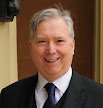The following thoughts on the Prime Minister’s discussion on the NHS yesterday morning were posted on his blog by a doctor.
I thought these were worth repeating here
You can read him at "NHS Blog Doctor" - the URL for the post is
http://nhsblogdoc.blogspot.com/2007/02/its-not-difficult-mr-blair.html
Tony Blair has defended his record on the NHS, and said it was in much better shape than when he came to office.
* [Not true. It is worse than it has ever been at any time in my medical career. Some waiting lists are shorter. I cannot think of anything else that is better, but could give you an endless list of things that are worse]
He defended big pay rises for GPs, and said he was pleased NHS staff were now earning more.
* [I am happy to earn more money. I am earning more money. Sadly, I am earning it for being an environmental statistician, for hitting government targets. This money has been wasted. We have worked very hard to hit targets. We should have been seeing patients]
Mr Blair also dismissed criticism his government had thrown money at the NHS without putting reform in place first. He said reform and extra cash for the NHS had gone hand in hand.
* [There have been lots of reforms. Lots of new bureaucracy. Lots of management consultants. Little has been achieved.]
On pay, Mr Blair dismissed criticism that GP pay had soared at the same time as their out-of-hours commitments had been reduced.
* [Two statements of fact. We have had substantial pay rises, and no GP now has to do out-of-hours work. A fair number work for co-operatives but no one has too.]
Earlier this week, one of the GPs who negotiated the pay deal for family doctors admitted the British Medical Association was stunned at the generous terms of the deal they were offered by government.
* [Absolutely true. I can remember when we were told that we could contract out of on-call work for a 6% cut in pay. We had a meeting. We did not laugh like Dr Fradd. We did not believe it. We would have accepted a 25% pay cut to be relieved of this onerous burden.]
Mr Blair denied that GPs were doing less, and said they were now offering a much better quality of service for patients.
* [Half correct. We are doing less in terms of out-of-hours work, much less. We are also doing more work within normal working hours, but the additional work is of little value to patients]
But shadow health secretary Andrew Lansley said the government had wasted money in the health service and alienated health professionals.
"The things like government top down target have distorted clinical priorities, wasting money and means that the professionals in the NHS are not able... to take decisions."
* [Absolutely correct. However much money we have earned, I cannot remember a political administration that is more hated than this one. And I say that as someone who voted for them. We have become wage-slaves with no professional autonomy. It is heartbreaking to see health-care deteriorate and be powerless to act. ]
Professor Alan Maynard, a health economics expert at York University, added the pay rises GPs have received - since the 2004 contract came in, earnings have pushed through the £100,000 barrier - have contributed to NHS deficits.
* [Of course they have. That is not rocket science. But the percentage of the total NHS spend that has gone on GP pay increases is small, and is dwarfed by the money wasted on PFI and management consultants.]
What should the government do to improve health care in general practice? The answer is so simple, is so clear, that only a politician blinded by doctrine could miss it. Ask patients what they want. I do not have to ask them. I know what they want. I have said it many times before.
Patients want reasonable access to a doctor. That is all. Quite simple. They do not want a phone call from a nurse-specialist, or an EMT or any other “health care professional”. They want to see, or at least speak to, a doctor. Yes, patient demands are, in the extreme, unreasonable and unaffordable. Some patients want to be able to see a doctor at any time of the day or night for any condition however trivial. That cannot be achieved. But that does not mean that we can do nothing. We could go a long way to meet patients’ reasonable requirements, and certainly a lot further than we go at present.
So here is the Crippen “back of envelope” plan for improving primary health care. Scrap all the targets. Use the money to pay incentives to GPs who provide wide availability.
a “before work” surgery from 7.00 am to 9.00 am
an “after work” surgery from 7.00 pm to 9.00 pm
a lunchtime surgery from 12.00 to 2.00 pm.
surgeries on Saturday and Sunday through-out the day
I used to run a large co-operative. A huge number of the out-of-hours calls were generated because “I could not get an appointment with my doctor”. It is the same with visits to A/E departments.
Let the money follow the patient. Allow patients to change doctor immediately, without all the bureaucratic hindrance that currently exists. The GPs providing a poor service will be poorly paid, and vice versa. That is how it should be.
GPs will not do any of this “for free”. Why should they? They have families as well. But pay them a decent amount of money to do it, and it will happen overnight. I would have no problem working my share of weekends. Nor would my partners. And it would be more helpful than recording the cholesterol levels of 87 year old women in the local nursing home.
All the government had to do was ask the profession, and the patients, what was wanted. But this government does not ask. It tells.

